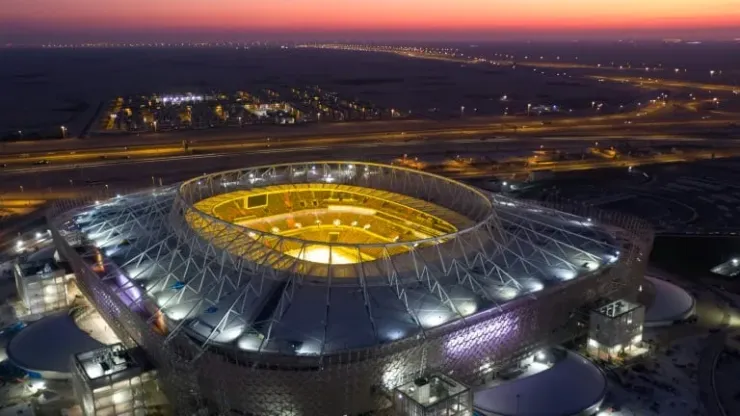Al-Rayyan (Qatar) (AFP) – Qatar will launch its latest completed World Cup stadium with a domestic fixture at which half of tickets will be reserved for fans who have recovered from coronavirus, the country’s FA said Monday.
The Al-Rayyan Venue, the third new stadium to be completed ahead of 2022, will host the domestic Emir Cup final on December 18 and will welcome around half of its 40,000 capacity.
“Anyone who enters the stadium must return either a negative Covid-19 test or a positive Covid-19 antibodies test,” Abdul Wahab al-Musleh, Qatar’s deputy chief medical officer, said in a statement issued by the QFA.
“About 50 percent of the available seats will be allocated to people who have previously contracted the virus.”
Fans will be required to undergo tests at one of three locations where their ticket application will be linked to their national identity cards and phone number.
Fans will then be eligible for a non-transferable ticket once they receive the required test result.
Once inside, fans will be required to wear a mask, show their contact tracing app, and stay in their allocated seat.
“This is the first time Qatar has hosted a match on this scale under such exceptional circumstances,” added Musleh.
Qatar has slowly been welcoming fans back to stadiums, permitting attendances of up to 30 percent in the top-flight Qatar Stars League.
The Emir Cup final will see favourites Al-Sadd, coached by Spain legend Xavi Hernandez, take on minnows Al-Arabi.
Al-Rayyan, located 24 kilometres (15 miles) west of the capital Doha, will host seven matches during Qatar 2022 up to and including the round of 16 stage.
Its glowing facade will feature patterns suggestive of Qatari themes including the importance of family, the desert, and local flora and fauna.
Qatar has so far inaugurated new-build Al-Janoub and Education City stadiums alongside the refurbished Khalifa ground.
After Al-Rayyan opens, only Lusail, Al-Bayt, Ras Abu Aboud and Thumama stadiums remain to be opened.
World Cup 2022 chief executive Nasser al-Khater said recently that all of the stadiums should be complete by the end of 2021 or beginning of 2022.
Qatar last week marked 10 years since it was named host of the 2022 tournament.
200+ Channels With Sports & News
- Starting price: $33/mo. for fubo Latino Package
- Watch Premier League, Women’s World Cup, Euro 2024 & Gold Cup
The New Home of MLS
- Price: $14.99/mo. for MLS Season Pass
- Watch every MLS game including playoffs & Leagues Cup
Many Sports & ESPN Originals
- Price: $10.99/mo. (or get ESPN+, Hulu & Disney+ for $14.99/mo.)
- Features Bundesliga, LaLiga, Championship, & FA Cup
2,000+ soccer games per year
- Price: $5.99/mo
- Features Champions League, Serie A, Europa League & Brasileirāo
175 Premier League Games & PL TV
- Starting price: $5.99/mo. for Peacock Premium
- Watch 175 exclusive EPL games per season






